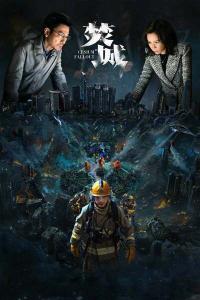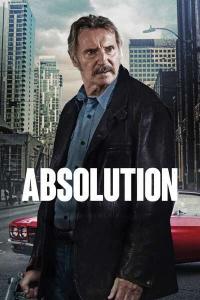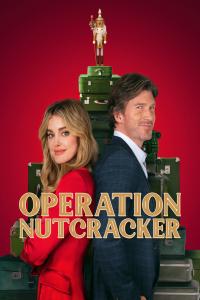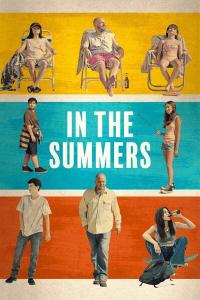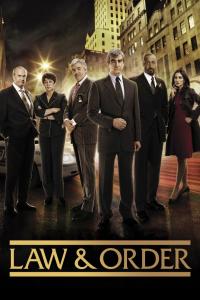Torrent details for "TTC - Shakespeare - The Word and the Action - (vonG)" Log in to bookmark
Controls:
Category:
Language:
 English
EnglishTotal Size:
406.84 MB
Info Hash:
f353f77d4f2be9003db7ef4c4be8af279141c510
Added By:
Added:
13-11-2019 09:34
Views:
1,049
Health:

Seeds:
0
Leechers:
0
Completed:
50
Shakespeare is the leading playwright, and probably the leading writer, in Western civilization. His works are one of the greatest achievements of the human mind and spirit. And yet, for many of us they remain a closed book. Why? Too often, we were force-fed Shakespeare as adolescentsâwhen our own dramas were all-consuming. The language of Shakespeare is 400 years old: even as adults, reading or seeing a play may seem like listening to Beethoven's Ninth Symphony and missing half the notes.
The crowds that filled the Globe to witness his plays in Elizabethan times enjoyed his words easily. Perhaps we've forgotten how to listen to his language, and we approach his works unaware of the larger cultural, political, and spiritual context that give them their full, rich meaning. Professor Peter Saccio is well suited to bring you back into Shakespeare's world, and tune you into what he calls "Shakespeare's wavelength."
The Teacher and His Plan
Teaching both as a lecturer and as a trained actor and director, and assisted by two Shakespearean actors, Professor Saccio brings the Bard's sonnets and plays to life with astute and passionate performances. As you hear him effortlessly deliver Elizabethan language with the proper meter, emphasis, intonation, and emotion, you'll experience the pleasure that comes with true mastery.
Professor Saccio also prepares you to read or watch the plays by orienting you to Shakespeare's use of multiple plots, lines of action, and the sometimes outmoded forms of human behaviorâsuch as courtship in Elizabethan Englandâthat arise in the plays.
Pure Language, Pure Feeling
Professor Saccio devotes two of his lectures to Shakespeare's sonnets, fusing an understanding of their technical elements (meter, rhyme, alliteration, pacing) with an appreciation for the torrent of variegated feeling that underlies them.
The sonnets are often misunderstood to be an autobiographical narrative of Shakespeare's personal life. Actually, they are something much greater than that. John Keats praised Shakespeare for his "negative capability," his capacity to inhabit and explore multiple moods, emotions, and perspectives, without committing to one. Only someone of his level of sensitivity and imagination could write on one occasion:
Kind is my love today, tomorrow kind,
Still constant in a wondrous excellence
... and then fume in another sonnet:
Th'expense of spirit in a waste of shame
Is lust in action; and till action, lust
Is perjur'd, murd'rous, bloody, full of blame.
Love's Language
Shakespeare had much more to say about love than could be contained in the space of a sonnet. Professor Saccio shows how he used comedies, romances, and even tragedies to reflect on love's every facet:
In A Midsummer Night's Dream, the characters' speeches reveal love as absurd, irrational, changeable, wonderful, and dangerous. The characters woo in a distant forest, away from society, lest their foibles undo the conventions of society. Amid piquant barbs on sexual politics, we find farcical spectacle, as the goddess Titania pledges undying love to the peasant Bottom, who is transformed into a donkey!
The Winter's Taleexplores the dark side of our passions, as irrational affection becomes unreasoning jealousy and rage. King Leontes destroys his family with rash accusations of infidelity. Repentant, he must seek the love that expresses itself in forgiveness, and that contains a touch of magic.
As You Like It is a study of lovers themselves, and the different kinds that make the world go round. You'll meet the earthy Touchstone and Audrey, the witty and erotically charged Celia and Oliver, the Petrarchan formalists Phebe and Silvius, and our heroes Rosalind and Orlando, who know love is madness, but embrace the sweet nonsense nonetheless.
Action and the Meaning of History
Shakespeare was acutely aware of the importance of history, and not just of events but of ideas. His tragedies and histories are meditations on the changing world around him, and of the eternal issues of character and human nature. Professor Saccio closely examines this world where actions and ideas intersect, and raises profound and unexpected questions:
Richard III is a classic villain, but somewhat disturbingly, also a Renaissance figure. Schooled in Machiavellian tactics of self-promotion, deception, and betrayal, he is a cautionary example of what it means to be a "self-made" man. Yet he says he is "determinate" to be a villain. Is this a Calvinist nod to the limits of free will and responsibility?
Henry V is often seen as the anti-Hamlet, a man of action and a military leader. But is he, or any king, really capable of making his own history? The son of a usurper, he is oppressed by the weight of history, of expectation, and by his own overwhelming sense of responsibility. In a famous scene he tries on the crown of his dying fatherâbut is this ambition or an attempt to wrestle with his own inexorable fate?
Can a man be a hero without a cause or a country? In Coriolanus, Shakespeare takes the great ideal of the action heroâand complicates it. Spurned by Rome, Coriolanus turns against it, then comes to realize that there is no victory for a man outside his polis. He yields to his mother's plea to spare Rome, knowing that its enemies will punish his weakness. "O my mother," he cries, "You have won a happy victory to Rome; But for your sonâbelieve it, O, believe it, Most dangerously you have with him prevail'd."
Of His Time, Ahead of His Time
One of the great rewards of reading Shakespeare is the discovery of his relevance to our times. Throughout the course, Professor Saccio offers startling and novel analyses of the plays, in addition to explicating more traditional views.
For example, The Tempest is widely remembered as Shakespeare's curtain call, a last display of his poetic magic before leaving the stage, with the wizard Prospero acting as Shakespeare's double. But the play also wrestled with many contemporary issues. It was written at the height of the Age of Exploration, and Shakespeare made use of reports from the Island of Bermuda and the Virginia Colony. It can be seen as a critique of colonization and European rapacity, of modern man's capacity to alter and exploit nature. Prospero's effort to tutor the native Caliban strongly echoes the civilizing mission of many European colonizers.
To read Shakespeare is to take a daunting journey into a perpetually undiscovered country that reinvents itself with every visit. But with Professor Saccio as your guide, it will become a familiar pleasure. To quote Caliban:
Be not afeard; the isle is full of noises,
Sounds and sweet airs, that give delight and hurt not.
Sometimes a thousand twangling instruments
Will hum about mine ears ...
The clouds methought would open and show riches
Ready to drop upon me that, when I waked,
I cried to dream again.
The crowds that filled the Globe to witness his plays in Elizabethan times enjoyed his words easily. Perhaps we've forgotten how to listen to his language, and we approach his works unaware of the larger cultural, political, and spiritual context that give them their full, rich meaning. Professor Peter Saccio is well suited to bring you back into Shakespeare's world, and tune you into what he calls "Shakespeare's wavelength."
The Teacher and His Plan
Teaching both as a lecturer and as a trained actor and director, and assisted by two Shakespearean actors, Professor Saccio brings the Bard's sonnets and plays to life with astute and passionate performances. As you hear him effortlessly deliver Elizabethan language with the proper meter, emphasis, intonation, and emotion, you'll experience the pleasure that comes with true mastery.
Professor Saccio also prepares you to read or watch the plays by orienting you to Shakespeare's use of multiple plots, lines of action, and the sometimes outmoded forms of human behaviorâsuch as courtship in Elizabethan Englandâthat arise in the plays.
Pure Language, Pure Feeling
Professor Saccio devotes two of his lectures to Shakespeare's sonnets, fusing an understanding of their technical elements (meter, rhyme, alliteration, pacing) with an appreciation for the torrent of variegated feeling that underlies them.
The sonnets are often misunderstood to be an autobiographical narrative of Shakespeare's personal life. Actually, they are something much greater than that. John Keats praised Shakespeare for his "negative capability," his capacity to inhabit and explore multiple moods, emotions, and perspectives, without committing to one. Only someone of his level of sensitivity and imagination could write on one occasion:
Kind is my love today, tomorrow kind,
Still constant in a wondrous excellence
... and then fume in another sonnet:
Th'expense of spirit in a waste of shame
Is lust in action; and till action, lust
Is perjur'd, murd'rous, bloody, full of blame.
Love's Language
Shakespeare had much more to say about love than could be contained in the space of a sonnet. Professor Saccio shows how he used comedies, romances, and even tragedies to reflect on love's every facet:
In A Midsummer Night's Dream, the characters' speeches reveal love as absurd, irrational, changeable, wonderful, and dangerous. The characters woo in a distant forest, away from society, lest their foibles undo the conventions of society. Amid piquant barbs on sexual politics, we find farcical spectacle, as the goddess Titania pledges undying love to the peasant Bottom, who is transformed into a donkey!
The Winter's Taleexplores the dark side of our passions, as irrational affection becomes unreasoning jealousy and rage. King Leontes destroys his family with rash accusations of infidelity. Repentant, he must seek the love that expresses itself in forgiveness, and that contains a touch of magic.
As You Like It is a study of lovers themselves, and the different kinds that make the world go round. You'll meet the earthy Touchstone and Audrey, the witty and erotically charged Celia and Oliver, the Petrarchan formalists Phebe and Silvius, and our heroes Rosalind and Orlando, who know love is madness, but embrace the sweet nonsense nonetheless.
Action and the Meaning of History
Shakespeare was acutely aware of the importance of history, and not just of events but of ideas. His tragedies and histories are meditations on the changing world around him, and of the eternal issues of character and human nature. Professor Saccio closely examines this world where actions and ideas intersect, and raises profound and unexpected questions:
Richard III is a classic villain, but somewhat disturbingly, also a Renaissance figure. Schooled in Machiavellian tactics of self-promotion, deception, and betrayal, he is a cautionary example of what it means to be a "self-made" man. Yet he says he is "determinate" to be a villain. Is this a Calvinist nod to the limits of free will and responsibility?
Henry V is often seen as the anti-Hamlet, a man of action and a military leader. But is he, or any king, really capable of making his own history? The son of a usurper, he is oppressed by the weight of history, of expectation, and by his own overwhelming sense of responsibility. In a famous scene he tries on the crown of his dying fatherâbut is this ambition or an attempt to wrestle with his own inexorable fate?
Can a man be a hero without a cause or a country? In Coriolanus, Shakespeare takes the great ideal of the action heroâand complicates it. Spurned by Rome, Coriolanus turns against it, then comes to realize that there is no victory for a man outside his polis. He yields to his mother's plea to spare Rome, knowing that its enemies will punish his weakness. "O my mother," he cries, "You have won a happy victory to Rome; But for your sonâbelieve it, O, believe it, Most dangerously you have with him prevail'd."
Of His Time, Ahead of His Time
One of the great rewards of reading Shakespeare is the discovery of his relevance to our times. Throughout the course, Professor Saccio offers startling and novel analyses of the plays, in addition to explicating more traditional views.
For example, The Tempest is widely remembered as Shakespeare's curtain call, a last display of his poetic magic before leaving the stage, with the wizard Prospero acting as Shakespeare's double. But the play also wrestled with many contemporary issues. It was written at the height of the Age of Exploration, and Shakespeare made use of reports from the Island of Bermuda and the Virginia Colony. It can be seen as a critique of colonization and European rapacity, of modern man's capacity to alter and exploit nature. Prospero's effort to tutor the native Caliban strongly echoes the civilizing mission of many European colonizers.
To read Shakespeare is to take a daunting journey into a perpetually undiscovered country that reinvents itself with every visit. But with Professor Saccio as your guide, it will become a familiar pleasure. To quote Caliban:
Be not afeard; the isle is full of noises,
Sounds and sweet airs, that give delight and hurt not.
Sometimes a thousand twangling instruments
Will hum about mine ears ...
The clouds methought would open and show riches
Ready to drop upon me that, when I waked,
I cried to dream again.




